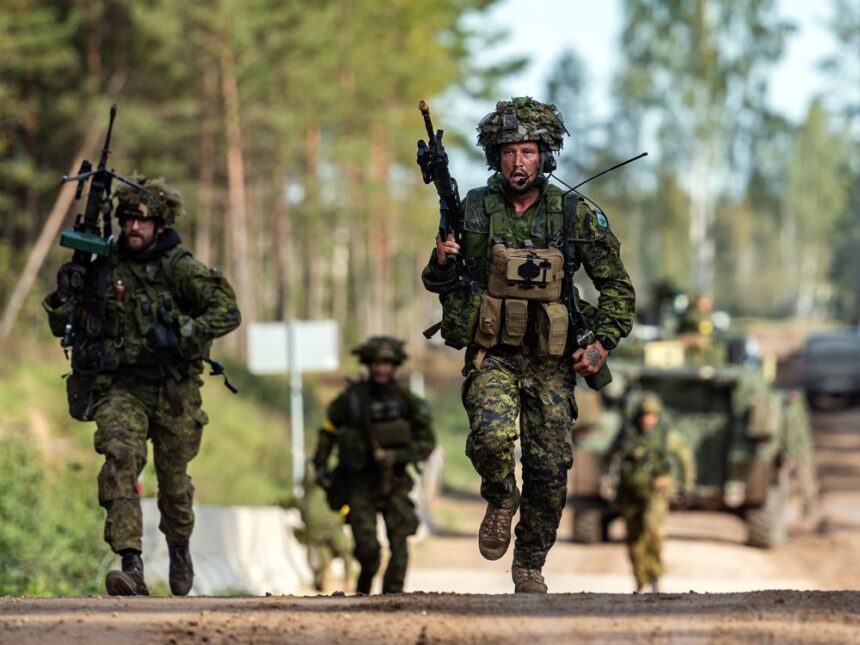In a decisive move underscoring Canada’s commitment to European security, Prime Minister Mark Carney announced today that the Canadian military mission in Latvia will be extended by three years until 2029. The extension builds upon Canada’s significant presence in the Baltic region, where it has served as the framework nation for NATO’s enhanced Forward Presence (eFP) battle group since 2017.
“Our presence in Latvia is not simply a military deployment—it represents Canada’s unwavering commitment to our allies and to the rules-based international order,” Carney stated during the announcement at NATO headquarters in Brussels. “In these uncertain times, with ongoing aggression in Ukraine and rising tensions across Europe, Canada stands firm with our NATO partners.”
The current Canadian deployment in Latvia consists of approximately 1,000 personnel, anchoring a multinational battle group that includes contributions from Italy, Spain, Poland, and several other NATO allies. The mission, initially deployed following Russia’s 2014 annexation of Crimea, has taken on heightened importance amid the continuing war in Ukraine and increased military posturing along NATO’s eastern flank.
Defence Minister Bill Blair emphasized the strategic significance of the extension, noting that Canadian forces are actively participating in a comprehensive deterrence strategy.
“Our troops in Latvia represent one of Canada’s largest overseas military deployments,” Blair explained. “They are conducting sophisticated training exercises, improving interoperability with our allies, and demonstrating our collective resolve to defend every inch of NATO territory.”
The extension comes with additional investments in equipment and capabilities, though specific figures were not disclosed in today’s announcement. Military analysts suggest the continued commitment will likely include enhanced air defense systems, intelligence gathering capabilities, and expanded training facilities at Camp Ādaži, where the battle group is headquartered.
Latvia’s Prime Minister Evika Siliņa expressed profound gratitude for Canada’s decision. “This extension sends a powerful message not only to the Latvian people but to all who would challenge the security of the Euro-Atlantic region,” she said during a joint press conference. “Canada has been an exemplary ally, and this continued commitment strengthens our collective security architecture.”
The extension announcement follows months of diplomatic discussions and comes amid NATO’s broader efforts to strengthen its eastern posture. Several other allied nations, including Germany, the United Kingdom, and the United States, have recently announced similar extensions to their regional deployments.
Military experts note that the Canadian-led battle group has evolved considerably since its initial deployment, expanding both in size and capability. What began as a primarily symbolic presence has developed into a combat-credible force designed to serve as a tripwire against potential aggression.
“The Canadian mission in Latvia has matured into a sophisticated military operation with genuine deterrent value,” said Dr. Stephen Saideman, Paterson Chair in International Affairs at Carleton University. “While still not large enough to stop a full-scale invasion on its own, it ensures that any aggression would immediately involve multiple NATO nations, triggering Article 5 collective defense provisions.”
As global security concerns continue to evolve, particularly with Russia’s ongoing war in Ukraine, Canada’s extended commitment to Latvia raises important questions about the future of transatlantic security arrangements. Will this extension inspire similar long-term commitments from other NATO allies, and how might these deployments reshape the security landscape of Eastern Europe for decades to come?










